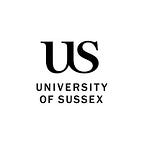“Our campaign has inspired students around the world”
Third-year University of Sussex Anthropology undergraduate Fred Henderson, 24, successfully campaigned to make an ethical search engine that ploughs profits into tree planting schemes the default search engine on the Sussex campus.
I’ve always wanted to do something fundamentally good. Around this time last year, myself and two other anthropology students, Amber Hayward and Erin Emirali, noticed that we were all using Ecosia as our search engine. Ecosia uses 80 per cent of its advertising profit to fund tree-planting projects around the world. Every 45 searches you do with Ecosia funds the planting of a tree in an area facing deforestation. We thought it would be good to tell everyone on campus to use Ecosia.
We started a Facebook page and a campaign, and had the full backing of the University’s IT services. When we showed there were enough student users at Sussex, we went to the vice chancellor and he said this was something he wanted to get behind. Since the start of this term, Ecosia has planted 5000 trees through Sussex student internet searches alone.
Making Ecosia the default search engine here has become an inspiration for students around the world. After the campaign at Sussex, we rebranded it to Ecosia on Campus to encourage other universities to do the same. I received a bursary to go to Berlin to study and went to the Ecosia offices there to make a video. It was shared by Ecosia, reaching 15,000 views, and translated into French. This got quite a lot of traction online. Students at more than 30 universities worldwide have now started their own campaigns, and we have been supporting them.
I worked in the print industry for four years before coming to Sussex. I left sixth form with A-levels in English Lit, Philosophy and Music Technology without any plans to go to university. I was a bit disaffected with studying for several reasons. I went on to work in three different print companies and learned everything about the industry, from sales to production, but I didn’t think I wanted to do it for the rest of my life.
I heard about Anthropology at Sussex through printing leaflets about the course. It was one of the job bookings where I was working at the time. I’d done a bit of travelling to Peru and Indonesia, and had read some books on anthropology. I realised that this was something that I could study and enjoy for three years. Philosophy had been my favourite subject, and that’s what enabled me to enter academia. It gave me the critical way of looking at things that you need for university. I would have struggled without it.
Anthropology is a fantastic subject. It gives you really valuable skills in perceiving the world and understanding people’s views outside of your own perspective. Since coming here I have been in the right mindset to work. I’ve also been a student rep for Anthropology since my first year. It means I get to feedback to the course tutors and to the School of Global Studies any comments or concerns from other students. I really like that level of involvement.
When I graduate I would like a job in corporate social responsibility (CSR). I see CSR as a way of making a positive impact on wider society; whether that’s alleviating poverty, or ensuring ethical standards of companies, or environmental issues. Companies have social responsibilities these days. I want to be part of the team that keeps these companies in check and operating to a good standard.
We won’t be able to save the world just by recycling or not eating meat. You hear environmental activists saying that it is only by making changes at the top level, in big companies and organisations, that we will be able to make a difference.
Interview by Jacqui Bealing
This profile is part of our This Sussex Life series.
Visit the University of Sussex website.
